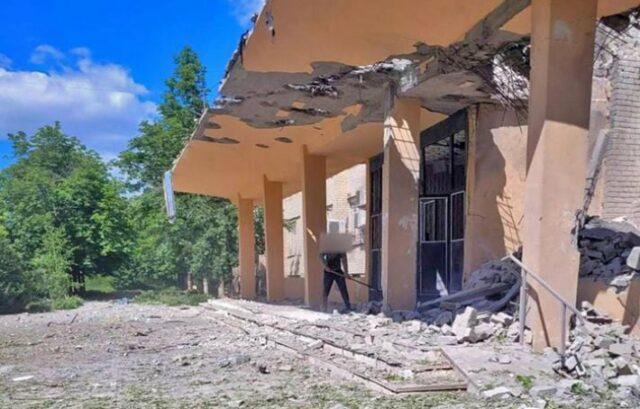Escalating Hostilities in the Zaporizhzhia Region: A Closer Look at Recent Military Actions
The situation in the Zaporizhzhia region has reached a boiling point, with six settlements experiencing intense military confrontations. Ivan Fedorov, the head of the Zaporizhzhia regional military administration, has confirmed these disturbing developments. As communities brace themselves for the impact of these aggressive actions, it’s essential to delve deeper into what is happening on the ground and its implications for the local population.
Aerial Assaults and Drone Strikes: A Growing Threat
Recent intelligence reveals a concerning pattern of aerial assaults, particularly in the settlement of Novoandreievka. In a shocking incident, a staggering 174 drone strikes, incorporating various modifications, have been recorded across multiple locations, including Huliaipole, Levadne, Robotyne, Mala Tokmachka, Malynivka, and Novoandreievka. These relentless attacks are not only terrorizing the local population but also severely disrupting daily life.
To put this in perspective, drone strikes can often be likened to the precision of a marksman—targeting specific locations with alarming accuracy. For residents, the sound of drones overhead has become a haunting soundtrack to their daily lives, heightening their fears and anxieties. Imagine trying to go about your daily routine while the constant buzz of drones overhead serves as a stark reminder of the violence that surrounds you.
Missile Strikes and Artillery Fire: An Unfolding Crisis
The turmoil escalated further as ten missile strikes bombarded Robotyne and Mala Tokmachka, leaving the communities in a state of panic. With a total of 196 artillery strikes recorded, the devastation is tangible. In fact, reports have indicated that 29 residential buildings have been destroyed, showcasing the catastrophic impact of these military operations on everyday homes and lives.
While it is fortunate that there have been no civilian casualties reported thus far, the psychological toll on the community cannot be understated. Local residents are left to grapple with anxiety and uncertainty, trying to maintain a sense of normalcy amidst chaos.
The Broader Implications: Monitoring the Aftermath
As the conflict unfolds, regional authorities are actively monitoring the impacts of these military operations on local communities. Beyond immediate property damage, the long-term implications for social cohesion and community resilience are significant. The stress of living in a conflict zone can lead to mental health issues among residents, including anxiety and post-traumatic stress disorder (PTSD).
Moreover, experts suggest that areas heavily affected by military conflict often see a decline in civic engagement and trust among community members. This erosion can hamper efforts to rebuild and restore normalcy once peace is achieved. Historical data shows that regions emerging from conflict can take years, or even decades, to fully recover, emphasizing the need for sustained support and intervention.
What Can Be Done? Unique Solutions and Community Resilience
In the face of adversity, communities can draw on various unique strategies to foster resilience and rebuild trust. Here are some proactive measures that can help:
- Community Dialogues: Organizing open discussions where residents can share their experiences and concerns fosters a sense of unity and understanding.
- Psycho-Social Support Programs: Implementing mental health initiatives can aid those grappling with the trauma of living in a conflict zone. Local NGOs can play a pivotal role in providing counseling and support services.
- Rebuilding Initiatives: Collaborative efforts involving local and international organizations can help restore damaged infrastructure and homes, providing not only physical relief but also a sense of hope.
As the tensions in the Zaporizhzhia region continue to unfold, it is clear that the road ahead will be fraught with challenges. However, through community resilience, open communication, and targeted support, the residents can begin to reclaim their lives from the shadows of conflict. The journey towards peace may be lengthy, but every step towards healing counts.





